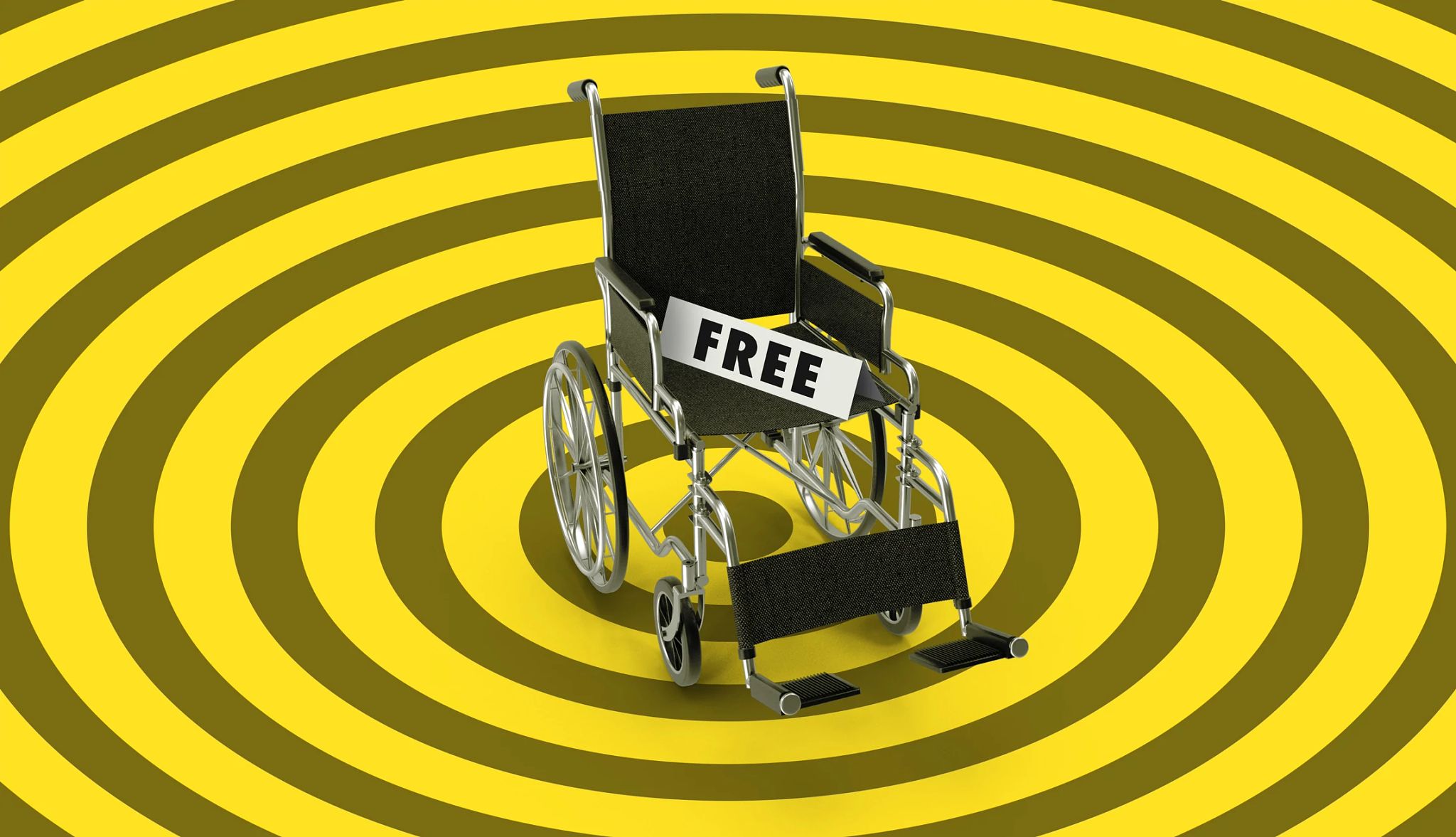AARP Hearing Center


In this story
Size of problem • How scams work • Red flags • Protect yourself • Report scams • More resources
Medicare spends more than $7 billion a year on durable medical equipment (DME) — wheelchairs, walkers, braces and other devices prescribed by doctors to help patients deal with an injury or chronic illness at home. That’s a boon to beneficiaries but also a big draw for fraudsters, who exploit older Americans’ health care concerns to enrich themselves.
In a medical equipment scam, someone reaches out to you offering a brace, a wheelchair, diabetes test strips or other devices for “free” (as in, “Medicare will pay for it”). You might get an unsolicited phone call, see an advertisement or be approached at a health fair or similar event.
Medicare equipment fraud is big business. In a recent California case, a father and son were sentenced to prison for creating a medical supply company and fraudulently receiving more than $21 million from Medicare for back, wrist, knee and shoulder braces.
Be aware that Medicare may not be the only victim: If you accept an offer of medical equipment, you could be responsible for up to 20 percent of the Medicare-approved cost of the item — the Medicare Part B coinsurance — which you may have to pay out of pocket if you don’t have Medigap or other supplemental coverage.
How medical equipment scams work
Using telemarketing and hard-sell tactics, scam operators may:
Steal your identity. Someone claiming to be from Medicare calls to say you’re eligible for a free knee or back brace, and they need your Medicare or Social Security number to process the benefit. “A lot of them will try and get as much information as they can from free offers,” says Jean Stone, who worked for the Centers for Medicare and Medicaid Services for more than 45 years and is a Senior Medicare Patrol (SMP) volunteer in New York City.
Send you bad equipment. You may receive a flimsy low-cost brace while the criminals charge Medicare for a much more expensive version.
Send you items you didn’t request. You unexpectedly receive medical equipment. “A big box appears at the door, and it’s substandard or expired,” Stone says. “It’s legitimate stuff, but the patient’s doctor never ordered it and the patient didn’t need it, but once it’s shipped, they don’t take it back.” Meanwhile, the criminals get paid by Medicare for the order. “They’re billing for things that the patient had no idea about,” Stone says.
Charge Medicare for equipment in your name. One Medicare beneficiary found a $5,600 charge for urinary catheters that she didn’t order and never received on her Medicare statement, says Jean Mathisen, a volunteer with Statewide Health Insurance Benefits Advisors (SHIBA) in Island County, Washington, who talked to the beneficiary. SHIBA is the Washington state health insurance assistance program.





































































More From AARP
How You Can Stop Illegal Robocalls
What they are, how to recognize them and how to protect yourself from scam calls
Tech Support Scams Are Rampant in 2024
How to thwart criminals who pretend to fix computer problems but steal your money instead8 Scams That Senior Medicare Patrols Are Seeing
Old cons are recycled to take advantage of news reportsRecommended for You